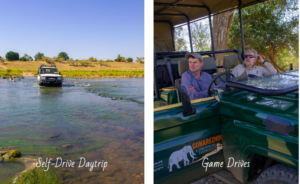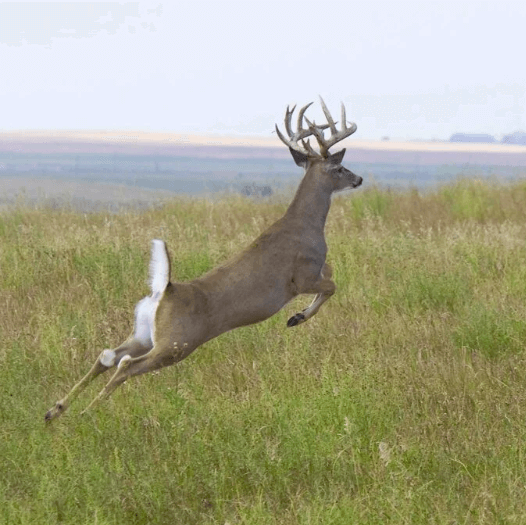
Connecticut deer hunting is a treasured and long-standing pastime that draws hunters from all throughout the state and beyond. Connecticut provides an interesting and satisfying hunting experience for both locals and non-residents, thanks to its diversified landscapes, growing deer population, and well-regulated hunting seasons.
Whether you’re a seasoned hunter or a novice, Connecticut’s deer hunting possibilities allow you to connect with nature, put your abilities to the test, and maybe capture a beautiful white-tailed deer.
In this article, we will look at the attractiveness of deer hunting in Connecticut, the rules in place, and techniques and recommendations to help you have a great hunting trip. So collect your gear, plan your strategy, and let’s dive into the world of deer hunting in the lovely state.
Connecticut’s Deer Hunting Seasons Explained
Connecticut’s deer hunting seasons are strictly enforced to maintain the long-term management of the state’s white-tailed deer population. Understanding the particular seasons and rules is critical for deer hunters in Connecticut. The following is an explanation of Connecticut’s deer shooting seasons:
Archery Season:
Archery season normally begins in early September and lasts until mid-November.
Hunters can use bows, crossbows, or arrows propelled by a bow or crossbow during archery season.
Special Opportunities: To promote young participation, Connecticut hosts a statewide Junior Deer Archery shooting day.
Firearms Season:
The firearms season typically begins in mid-November and lasts until early December.
During firearms season, hunters may use shotguns, muzzleloaders, or other lawful firearms explicitly permitted by state restrictions.
Muzzleloader Season:
Muzzleloader season normally begins in late December and lasts only a few weeks.
Hunters can use muzzleloading rifles during muzzleloader season, which are loaded through the muzzle and ignited by a primer or percussion cap.
Private Land Shotgun/Rifle Season:
The private property shotgun/rifle season begins in January, after the other deer hunting seasons have ended.
Regulations: Because this is a private land season, hunters must have a valid private land shotgun/rifle deer permit to participate.
Special Seasons and Bonus Tags:
Tags for antlerless deer:
Connecticut provides bonus tags for antlerless deer harvest, offering additional hunting chances to manage the deer population.
Youth Deer Hunting Days:
Connecticut specifies particular days for juvenile hunters, giving them unique hunting chances while supervised by an adult.
It is crucial for hunters to review the Connecticut Hunting and Trapping Guide, issued by the Connecticut Department of Energy and Environmental Protection (DEEP), for specific season dates, bag limits, licensing requirements, and any changes or updates to regulations. Additionally, hunters must obtain the appropriate hunting license, tags, and permits before participating in deer hunting in Connecticut.
How to go deer hunting in Connecticut
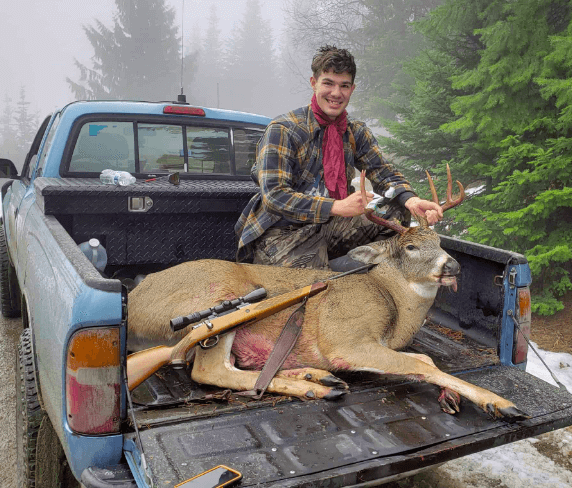
Deer hunting in Connecticut necessitates an understanding of hunting tactics, rules, and safe procedures. Here are some common deer hunting steps and recommendations for Connecticut:
Obtain all required licenses and permits:
Before going deer hunting in Connecticut, be sure you have a current Connecticut hunting license and any necessary deer tags or permits.
Scout the hunting grounds:
Scout the area where you intend to hunt before the hunting season begins. Look for deer activity signals such as tracks, droppings, sleeping spots, and feeding locations. Identifying deer movement patterns and preferred habitats will improve your chances of success.
Install stands or blinds:
Select places for tree stands or ground blinds that offer both visibility and concealment. Place them near deer paths, food supplies, or known sleeping places, but observe all safety requirements and laws when using high stands.
Practice scent control:
Deer have a high sense of smell, so take precautions to reduce your odor. Wear scent-blocking clothes, don’t smoke, and use scent-neutralizing sprays. Keep an eye on the wind direction to avoid alerting deer to your presence.
Use proper hunting techniques:
In Connecticut, hunters typically use tactics such as still hunting, stand hunting, and deer drives. Still hunting is going slowly and softly through the woods, whereas stand hunting entails waiting in an elevated stand or ground blind. Deer drives are concerted efforts to drive deer toward other hunters.
Follow the legal shooting hours:
Keep track of permissible shooting hours and make sure you’re following the rules. Shooting hours for deer hunting in Connecticut normally begin 30 minutes before sunrise and last 30 minutes after dusk.
Be patient and vigilant:
Patience and focus are required during deer hunting. Stay calm, be silent, and monitor your surroundings for any evidence of deer activity. Pay attention to minor things and be ready for possibilities.
Hunt in an ethical manner:
Always emphasize safety and hunt ethically. To guarantee a speedy and humane harvest, take responsible shots within your effective range, aiming on critical areas. Respect the property of landowners and observe all hunting restrictions and laws.
Participate in post-hunt activities:
Following a successful harvest, field dress and prepare the deer correctly to ensure the meat is kept and handled safely. Responsible carcass disposal and reporting of harvest are needed by state regulations.
How to get a deer hunting permit in Connecticut?
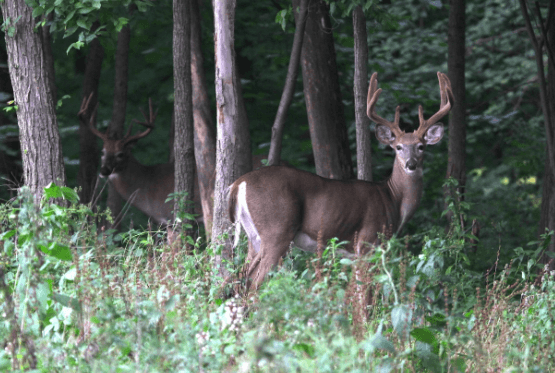
To receive a Connecticut deer hunting permit, you must complete a few procedures prescribed by the Connecticut Department of Energy and Environmental Protection (DEEP). Here’s a general guide to obtaining a Connecticut deer hunting permit: visit link for info.
Purchase a Hunting License:
Make sure you have a current Connecticut hunting license before applying for a deer hunting permit. A hunting license can be obtained online through the DEEP website or by contacting a participating retailer.
Examine Deer Permit Options:
Connecticut provides a variety of deer hunting permits based on the season, area, and type of deer you intend to pursue. Learn about the many permit alternatives, such as archery permits, guns permits, and muzzleloader licenses.
Choose the Deer Management Zone:
Connecticut is separated into Deer Management Zones, with each having its own set of rules and bag limitations. Determine which Deer Management Zone you intend to hunt in, since this will influence the permit you require.
Apply for the Permit:
Once you’ve chosen on the best deer hunting permit for you, you may apply online at the DEEP website. Typically, the application time begins well in advance of the hunting season. Provide the requested information, such as your hunting license number, zone choice, and any other data.
Pay the Application Fee:
In Connecticut, there is an application cost for deer hunting permits. During the application procedure, pay the appropriate cost online.
Check the Drawing Results:
Following the closing of the application period, the DEEP conducts a permit drawing for limited access regions or special permits. The drawing results can be viewed on the DEEP website or by contacting the DEEP directly.
Obtain the Permit:
You will get your deer hunting permit if you were successful in the permit lottery or filed for an open permit area. The season, zone, and any other regulations or limits will be included in the permission.
It is important to note that specific dates, fees, and application processes may vary from year to year. Therefore, it is crucial to consult the Connecticut Hunting and Trapping Guide, issued by the DEEP, and the DEEP’s website for the most up-to-date information on obtaining a deer hunting permit in Connecticut.
How much is a deer hunting permit in Connecticut?

Please note that fees and costs are subject to change, so it is essential to refer to the most current information provided by the Connecticut Department of Energy and Environmental Protection (DEEP) for the most accurate and up-to-date pricing. Here is a general overview of the permit fees:
- Resident Deer Permit:
- Archery Permit: $41
- Firearms Permit: $41
- Muzzleloader Permit: $41
- Non-Resident Deer Permit:
- Archery Permit: $135
- Firearms Permit: $135
- Muzzleloader Permit: $135
In addition to the basic permit fees, there may be additional fees associated with specific permits or hunting areas, such as special permits for controlled hunting areas or permits for specific management zones. It’s important to review the Connecticut Hunting and Trapping Guide issued by the DEEP for the most up-to-date information on permit fees and any additional costs that may apply.
Best Connecticut deer hunting places
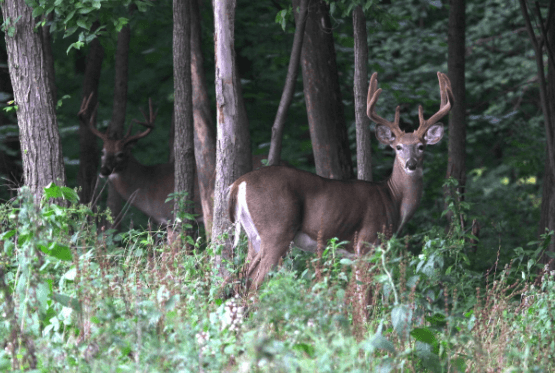
Deer hunters in Connecticut have a variety of hunting options around the state. The following are some popular deer hunting spots in Connecticut:
Wildlife Management Areas and State Forests:
Connecticut includes a number of state forests and wildlife management areas that are open to the public for hunting. Natchaug State Forest, Meshomasic State Forest, Tunxis State Forest, and Cockaponset State Forest are a few examples. These places provide a variety of ecosystems and a large deer population for shooting.
Private Property:
Connecticut’s private properties can give outstanding deer hunting possibilities. When hunting on private property, it is critical to secure permission from landowners and the relevant permits or access agreements. Access to great hunting locations can be obtained through cultivating ties with landowners, joining hunting organizations, or leasing land.
Farms and Agricultural Lands:
Connecticut is home to a variety of farmlands and agricultural areas that might attract deer. These locations frequently include food supplies such as crops, orchards, and fields, making them possible deer activity hotspots. Permission from landowners is required for hunting on these lands.
State Forests and Parks:
While hunting in Connecticut state parks is normally forbidden, certain state woods provide designated hunting areas or licenses for deer hunting. Pachaug State Forest, Shenipsit State Forest, and Naugatuck State Forest are a few examples. Before hunting, check the individual restrictions for each park or forest.
Wildlife Corridors and Greenbelts:
Deer hunting chances may be found in Connecticut’s network of wildlife corridors and greenbelts, such as the Mattabesett Trail and the Farmington Canal Heritage Trail. These corridors frequently connect multiple habitats and might be useful for hunters attempting to track deer migration between feeding and sleeping locations.
Hunting Areas Under Control:
Connecticut has regulated hunting zones, which are private lands or estates where hunting is permitted under strict rules and regulations. These places are usually managed for hunting and can give excellent deer hunting opportunities.
Remember to always seek permission from landowners and comply with all hunting regulations, including obtaining the necessary licenses, permits, and tags. It is essential to review the Connecticut Hunting and Trapping Guide, issued by the Connecticut Department of Energy and Environmental Protection (DEEP), for specific regulations, boundaries, and any additional restrictions for hunting locations in Connecticut.
Benefits of ebike hunting
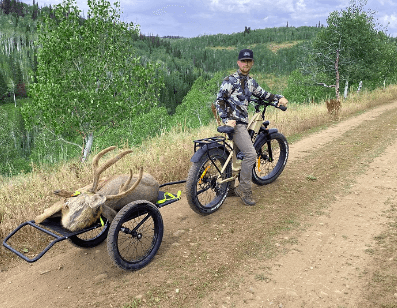
Hunting deer using an electric bicycle (ebike) in Connecticut may have various advantages:
Enhanced Mobility:
When compared to traditional hunting methods, an ebike gives hunters with increased mobility and the capacity to cover more terrain. The electric motor aids with pedaling, allowing hunters to more efficiently travel harsh terrains, wooded areas, and difficult terrain.
Quiet and discrete:
Ebikes run quietly, reducing noise and disruption in the hunting area. The silent operation of an ebike decreases the possibility of spooking deer and other animals, enhancing the possibility of approaching deer without alerting them.
Extended Range:
An ebike’s electric assist capability allows hunters to go longer distances without exerting too much energy. This increased range allows hunters to explore more isolated or less accessible hunting regions, boosting their chances of locating deer in less heavily populated areas.
Eco-Friendly:
Ebikes are ecologically beneficial modes of mobility since they emit no pollutants. They are a more environmentally friendly alternative to regular gas-powered cars or off-road vehicles, lowering the carbon footprint and impact on the environment while providing access to hunting regions.
Convenience and efficiency:
Using an ebike for hunting can save time and effort while getting to and from hunting locations. Ebikes are faster than walking and less heavy than bigger vehicles, allowing hunters to more effectively access hunting regions.
Physical Fitness Advantages:
While an ebike provides electric help, hunters can still exercise by peddling and navigating through varied terrains. It can help enhance cardiovascular health and general physical fitness, making it simpler to navigate difficult hunting terrain.
When hunting using an ebike in Connecticut, hunters must follow all relevant hunting rules, electric bike laws, and any particular requirements imposed by the Connecticut Department of Energy and Environmental Protection (DEEP).
Additionally, when utilizing an ebike for hunting, sportsmen should stress safety, ethical hunting techniques, and respect for wildlife and other outdoor enthusiasts.
Connecticut ebike Laws Explained. All You Should Know Before Buying an E-bike In CT.
FAQs About Connecticut deer hunting Answered
Q: What are the deer hunting seasons in Connecticut?
A: Archery, rifle, and muzzleloader seasons are available in Connecticut for deer hunting.
Q: How can I apply for a Connecticut deer hunting permit?
A: You may apply for a Connecticut deer hunting permit online at the Connecticut Department of Energy and Environmental Protection (DEEP) website.
Q: What are Connecticut’s deer hunting bag limits?
A: Deer hunting bag limitations in Connecticut vary depending on permit class and deer management zone. For further information, consult the Connecticut Hunting and Trapping Guide.
Q: Can I use a crossbow to shoot deer in Connecticut?
A: Crossbows are legal for deer hunting in Connecticut during certain seasons.
Q: Does Connecticut provide any unique young deer hunting opportunities?
A: Yes, Connecticut has dedicated youth deer hunting days to promote youth participation while under the supervision of an adult.
Q: Are there any limits on the sorts of guns that may be used to hunt deer in Connecticut?
Yes, strict laws govern the sorts of guns permitted for deer hunting. For further information, consult the Connecticut Hunting and Trapping Guide.
Q: Is it necessary to wear blazing orange when deer hunting in Connecticut?
A: Yes, during deer hunting in Connecticut, hunters must wear at least 400 square inches of neon orange.
Q: Are there any restrictions on the harvest of antlerless deer in Connecticut?
A: Yes, there are special rules in Connecticut for harvesting antlerless deer. For further information, consult the Connecticut Hunting and Trapping Guide.
Q: Is it legal to hunt deer on Sundays in Connecticut?
A: Sunday deer hunting is legal in Connecticut, but there are certain limits.
Q: Are there authorized deer hunting areas or wildlife management units in Connecticut?
A: Connecticut does have authorized hunting areas as well as deer control zones. For further information, consult the Connecticut Hunting and Trapping Guide.
Q: In Connecticut, how do I record my deer harvest?
A: Hunters in Connecticut are obliged to register their deer harvest within 24 hours, either online or by phone.
Q: Do you need any specific licenses or tags to hunt in certain locations or zones in Connecticut?
A: Yes, specific locations or zones in Connecticut may require special hunting permits or tags. For further information, consult the Connecticut Hunting and Trapping Guide.
Q: Can I use bait to hunt deer in Connecticut?
A: No, baiting is not permitted in Connecticut for deer hunting.
Q: Are there any restrictions or regulations in Connecticut for hunting deer on private land?
A: In Connecticut, hunting on private properties needs permission from landowners and adherence to restrictions. Seek permission from the landowner and check any applicable legislation.
Q: Are there any limits in Connecticut on the usage of dogs to search out injured deer?
A: In Connecticut, there are no limits on employing dogs to search out injured deer.
Q: What are the consequences in Connecticut for breaching deer hunting regulations?
A: Penalties for breaking Connecticut deer hunting restrictions include fines, loss of hunting licenses, and even legal ramifications. For further information, see the Connecticut Hunting and Trapping Guide.
Q: Can non-residents hunt deer in Connecticut, and if so, what are the rules?
A: Non-residents are permitted to hunt deer in Connecticut, but they must get the necessary licenses and permits.
Similar post.
- Exploring Pronghorn Hunting States and Their Tags: A Comprehensive Guide.
- Elk hunting Canada. How and Where can you Hunt elks in Canada.
- The Majestic Elk: All You Need to Know About this Iconic Animal.
- Embarking on an Epic Adventure: Elk Hunting in South Dakota.
- Elk Hunting In Alaska: Key Points to Note Before Planning your hunt.



